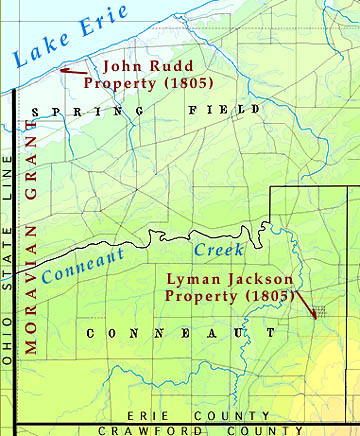GlennThigpen wrote:...
either Winchester or the "Jackson" had actually seen the manuscript.
...
W. W. Phelps probably saw the Roman story -- since Mr. Howe knew
him before be became a Mormon -- and said that Phelps had come to
see him, regarding the planned publication of "Mormonism Unvailed."
In the last chapter of that book (available for sale in Nov., 1834)
Howe gave almost exactly the same description of the Roman story
as supplied by Winchester. Winchester does not add even a single
new, unique detail regarding the Roman story.
Lyman Jackson died in 1835 -- probably at about the same time that
Orson Hyde was interviewing the Conneaut witnesses. Hyde may not
have taken a statement from Lyman -- but he probably solicited
information from Lyman's daughter, Rosanna Jackson Rudd (1782-1866)
who was by then a Mormon.
The fact that Orson Hyde did not publish his Conneaut interviews can
be coupled with the testimony of Lyman's son Abner -- who recalled
a Spalding story rather like the Book of Mormon, and with the
testimony of Rosanna's brother-in-law, Erastus Rudd -- who also
recalled a Spalding story somewhat like the Book of Mormon.
Thus, the preponderance of the evidence weight is on the side of
Spalding having written a novel resembling the Book of Mormon, and
not upon the side of Lyman Jackson saying there was no such story.
Winchester, soon after publishing his 1840 pamphlet, left the Mormons
and subsequently related many, many things about Joseph Smith and
early Mormon activities which LDS historians consider to be outright
lies. For example -- he said that Oliver Cowdery helped write the Book of Mormon
narrative, etc. etc. If the Mormons consider Winchester to have been
such a blatant liar, I suppose we must at least consider that his
assertions regarding Lyman Jackson could also be lies.
The fact remains that Erastus Rudd and Rosanna Jackson Rudd
became Mormons, while knowing that Spalding had written fiction
about the ancient Americans being the Ten Tribes of Israel. They
obviously were not much bothered by this fact. Their relative,
Abner Jackson, claimed to have known more about the story and
to know that it more closely resembled the Book of Mormon than
is explainable by sheer coincidence. Abner never became a Mormon.
All in all, I'd say that Winchester's vague quoting of an unidentified
"Mr. Jackson" does not add a single bit of knowledge to the Roman
story description published by Howe in 1834 -- and that Winchester
may well have been putting words into "Mr. Jackson's" mouth.
UD
